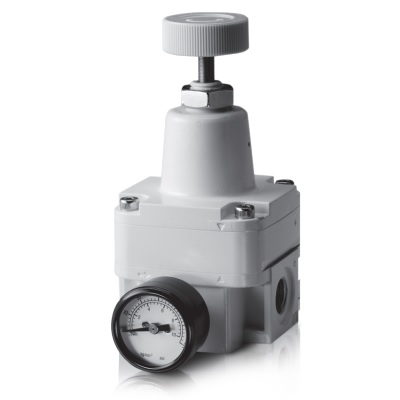2022-04-15
When Do You Need a Precision Regulator?

When Do You Need a Precision Regulator?
There are plenty of options available as far as air pressure regulators are concerned. There are filter regulators, FRLs, and regulator-only units. Aside from this, there are also different types of materials for the diaphragm and body, and a variety of accessories that all add a certain complexity to the decision-making process.
Applications are all different, which is why there are several types of regulators for a specific port size, capacity range, and pressure range. There are a lot of combinations that work for various applications. However, what are the indications that it is time for you to switch to a precision regulator from a general purpose one?
Signs You Need a Precision Regulator
There are several things that you might be experiencing in your specific application of air regulators that might require you to upgrade to using precision regulators.
The first indication is when you cannot seem to achieve the correct set point since you always adjust the regulator and this jumps to either side of the required set point. To put it simply, your regulator no longer has the resolution that you need. It can be because of the improper range of spring.
However, it would seem to imply an issue with sensitivity or repeatability. Your regulator doesn’t react fast enough to your commands, and this will then reset to a different pressure compared to what is needed.
One more potential reason that you might be experiencing some difficulty is when there is a very small exhaust capacity that may add some adjustment strains for bigger volumes of regulated air.
Another reason why you might want to switch to a precision regulator is when the downstream pressure changes a lot with temperature and flow even if you didn’t adjust the setting of the regulator. When you change the temperature or increase the flow, there is a higher risk that there will also be a change in the downstream pressure.
The general purpose regulators don’t factor in flow or temperature really well. The common flow curves or droop curves can demonstrate it really well.
Important Terms to Know about Precision Regulators
Before you decide if you need a precision regulator, you have to make sure that you know and understand the key differences in the performance of general purpose and precision regulators. The focus must be on the performance characteristics instead of size or shape.
When it comes to accuracy, you have to consider repeatability, resolution, and sensitivity. These terms are often the cause confusion and may be used incorrectly. Things become more confusing because several of these characteristics actually depend on each other.
For instance, accuracy is the generic term used for different aspects of the performance of a regulator. Many people often use the term when searching for a better regulator. What determines a better or more precise type of regulator depends on the specific application and the current regulator’s obvious shortfall. Sensitivity, droop, repeatability, and resolution are the main factors that must always be considered before deciding to make the switch to a precision regulator.
- Air Source Units
- Control Valves
- Miniature Cylinder
- Standard Cylinder
- Stopper Cylinder
- Dual Rod cylinder
- Compact Cylinder
- Slide Table Cylinder
- Guide Cylinder
- Rodless Cylinder
- Clamp Cylinder
- Gripper Series
- Rotary Cylinder
- Directional Control Series
- Vacuum Equipment
- Fitting/Auxiliaty Equipment
- Accessories
